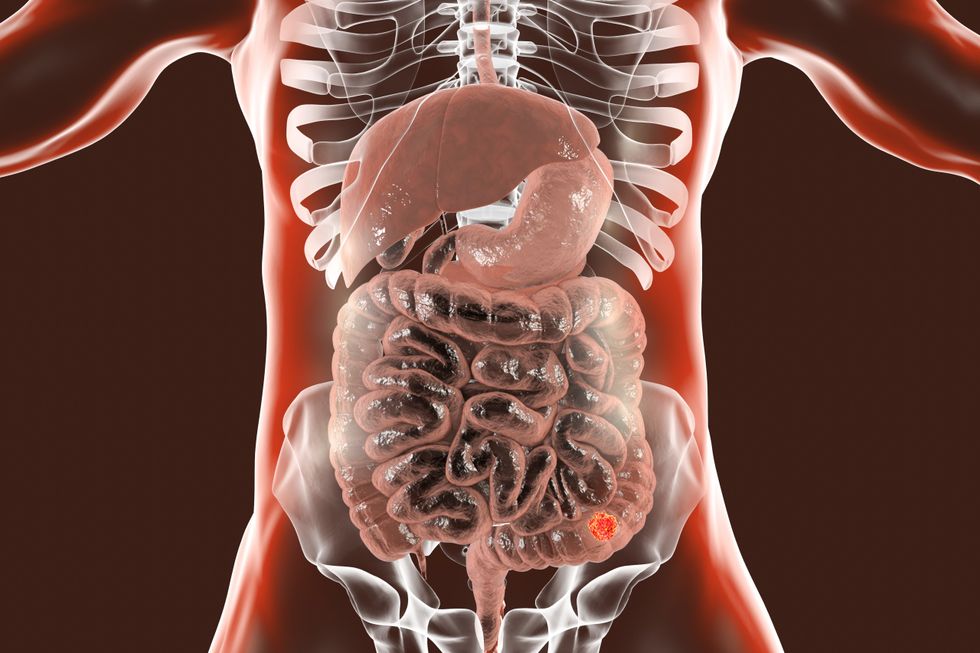Hidden cancer danger found in everyday sauces and spreads with strong link to tumour-causing growths

Everyday condiments may harbour a hidden health risk, scientists have warned
Don't Miss
Most Read
A groundbreaking study has found that younger women who eat lots of ultra-processed foods face a much higher risk of developing precancerous growths in their bowels.
The research, published in JAMA Oncology, discovered women under 50 who consumed the most ultra-processed foods were one and a half times more likely to develop adenomas - polyps which can turn into cancer.
The finding could help explain why colorectal cancer rates have been shooting up among younger people in recent decades.
These adenomas are particularly concerning because three-quarters of all colorectal cancers start out as these growths, making them a crucial early warning sign.

Three-quarters of all colorectal cancers start out as adenomas
|GETTY
Led by Dr Andrew Chan from Massachusetts General Brigham in Boston, the research team analysed data from more than 29,000 female nurses who took part in the long-running Nurses' Health Study II.
These women, aged between 24 and 42 when they first joined in 1989, were tracked for 24 years from 1991 to 2015.
Every four years, they filled in detailed questionnaires about what they ate, and each woman had at least one colonoscopy before turning 50.
The researchers then checked whether any of the women had been diagnosed with precancerous polyps - specifically looking at adenomas, which are more likely to become cancerous, and serrated lesions, which pose less risk.
About 1,200 women in the study developed adenomas during the research period.
The foods that posed the biggest threat turned out to be those high in sugar and artificial sweeteners, which showed the strongest link to adenoma development.
LATEST DEVELOPMENTS:
Sauces, spreads and condiments came in as the second-highest risk category.
It's worth noting that the study found no connection between ultra-processed foods and serrated lesions - the less dangerous type of polyp.
Dr Chan explained that this specific link to adenomas gave his team more confidence about the cancer connection: "The strength was that we looked at two major types of polyps - it's the adenoma type that seems to underlie cancer, and we saw the link between that."
The findings come at a time when doctors are increasingly worried about rising colorectal cancer rates in people under 50.
Dr Chan and his team have been trying to work out what's changed in our environment to trigger this alarming trend.
"What are some trends that mirror this acceleration in cancer rates?" he asked.

Ultra-processed foods now dominate the typical British diet
| TIKTOKUltra-processed foods now dominate the typical British diet, particularly among children, and have already been linked to depression, Type 2 diabetes and premature death.
Dr Folasade May, a gastroenterologist at UCLA who wasn't involved in the research, pointed out that while most polyps don't become cancerous, nearly all colorectal cancers do begin as polyps.
Our Standards: The GB News Editorial Charter











